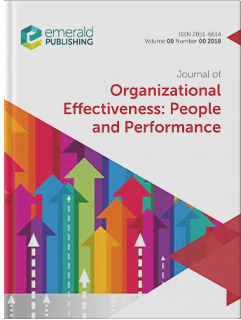Kravariti, F., Oruh, E.S., Dibia, C., Tasoulis, K., Scullion, H. and Mamman, A. (2021), “Weathering the storm: talent management in internationally oriented Greek small and medium-sized enterprises”, Journal of Organizational Effectiveness: People and Performance, Vol. 8 No. 4, pp. 444-463. https://doi.org/10.1108/JOEPP-01-2021-0022
Abstract
Purpose
Based on a study of internationally oriented Greek small and medium-sized enterprises (SMEs), and using the lens of institutional theory, this paper extends the understanding of the extent to which Greece’s institutional context influences talent management (TM). In so doing, the authors focussed on the key TM practices employed by SMEs to enhance and sustain TM: talent acquisition, development and retention. The authors also explore how these practices are shaped by the Greek institutional context.
Design/methodology/approach
Employing a multiple case-study approach, the authors conducted 18 interviews in six distinctive SMEs operating in north, central and southern Greece. The data were thematically analysed to identify patterns across all SMEs.
Findings
This study found that unlike multinational corporations, internationally oriented Greek SMEs adopt a more inclusive approach to TM practices as well as that the country’s institutional context presented important yet not deterministic hurdles. The authors also found that SMEs adopt an opportunistic approach to talent acquisition by utilising appropriate available sources to reach out for available talent. The authors provided evidence that SMEs adopt a hybrid approach to talent development in addressing talent scarcity. Finally, this study reported that talent retention is significantly appreciated by SMEs, who offer a range of intrinsic and extrinsic incentives to retain their talented workforce.
Practical implications
This study provides stakeholders with insights into how effective TM practices can be considered a lifeline to organisational sustainability – particularly for SMEs in the contemporary challenging and fiercely competitive business environment. It also highlights the potential of inclusive TM practices to be part of an effective workforce management strategy: Relative to the prevailing institutional dynamic, stakeholders (policymakers and human resource practitioners) must engage in the multiple areas of individual talent acquisition, development and retention.
Originality/value
In a context of reforms, this study reports on TM practice in internationally oriented Greek SMEs. The authors also add to the literature on TM in SMEs by providing evidence on the conceptualisation and management of global talent in this context.


Recent Comments